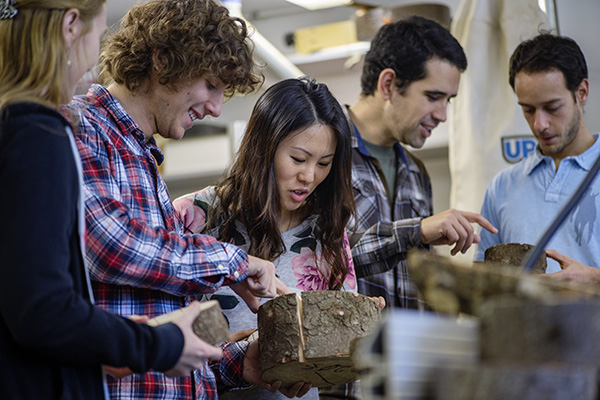By Merja Haapiainen, International Affairs Specialist, UEF Erasmus+ Institutional Coordinator
In today’s world, universities must, besides providing scientific education, also focus on equipping their students and staff members with skills to face new challenges and opportunities, such as people moving between countries, or changes in the political and/or socioeconomical environment. These new challenges and opportunities require citizens to have knowledge of, and sensitiveness in, cultural differences and international operating environments. In this task, the Erasmus+ programme has played a significant role in promoting internationalisation and fostering educational exchange at the University of Eastern Finland (UEF). Let’s delve into some of the key insights:
- Student Mobility for Studies and Traineeships:
- Erasmus+ Exchange Programmes: UEF actively participates in the Erasmus+ student exchange programme, allowing students to study abroad for one or two semesters. These exchanges enhance students’ academic and cultural experiences by immersing them in different educational systems and diverse environments.
- Language and Cultural Proficiency: Erasmus+ students gain language skills, adaptability, and cross-cultural competence. They learn to navigate new academic settings, collaborate with peers from various backgrounds, and broaden their horizons.
- Academic Recognition: UEF ensures that credits earned during Erasmus+ exchanges are recognised, contributing to students’ degree progress.
- Staff Mobility for Teaching or Training:
- Professional Development: UEF faculty and staff participate in Erasmus+ mobility programmes, including teaching assignments or training courses. These experiences allow them to share expertise, learn best practices, and enhance their teaching methods.
- Networking and Collaboration: Staff mobility fosters collaboration with colleagues from partner institutions. It promotes joint research, curriculum development, and innovative teaching approaches.
- Quality Assurance: UEF’s involvement in Erasmus+ ensures continuous improvement in teaching quality, curriculum design, and institutional development.
- Blended Intensive Programmes:
- Innovative Learning Formats: UEF designs blended intensive programmes that combine face-to-face interactions with virtual components. These programmes offer flexibility, allowing students and staff to engage in cross-border learning without extended physical stays.
- Interdisciplinary Collaboration: Blended programmes encourage interdisciplinary collaboration, bringing together participants from different fields and backgrounds. This enriches the learning experience and promotes creativity.
- Digital Competence: UEF leverages technology to enhance blended programmes, emphasising digital literacy, online collaboration, and virtual teamwork.
In summary, Erasmus+ has significantly contributed to UEF’s internationalisation efforts, fostering student and staff mobility, promoting cultural exchange, and enhancing educational quality. By participating in Erasmus+, UEF continues to strengthen its global network and provide enriching opportunities for its academic community.










